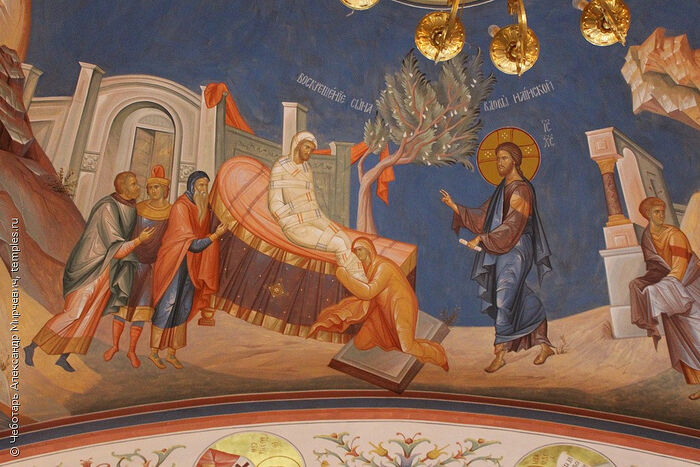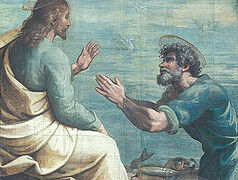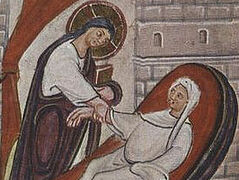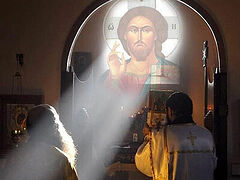Be ye merciful, as your Father in Heaven is merciful. This is what the Lord said on the mount of the Beatitudes. We spoke of mercy last Sunday. Today the Gospel reading talks about Christ’s immeasurable works of love and mercy, which surpass the mind.
Coming down from the mount of the Beatitudes, accompanied by a multitude of people who did not want to part with the wondrous Divine Teacher, Jesus Christ affirms by deeds His teaching on love and mercy. On the road to the city of Nain He heals by His word a leper, then many demonaics, and in Capernaum the centurion’s servant and the paralytic, but after these remarkable events came even more amazing works of mercy.
At the entrance to the city of Nain, He was met with a sorrowful sight: From the gates of the city, mourners were carrying out the body of a youth for burial. This youth was the “only son of his mother, and she was a widow.” The mother’s terrible pain found a response in the Savior’s infinitely loving heart. Taking pity on the unfortunate mother and saying to her, “Weep not,” he approached the coffin in which the dead youth lay, and not paying attention to the purely ritual order, he touched him. When all saw this they froze in expectation. Seized with perplexity at how against all prohibitions on this in the teachings of the elders He touches a corpse, the frightened pall bearers stopped. And then, amidst the grief-stricken mother and the people accompanying her, sounded the calm voice of Christ, saying, “Young man, I say unto thee, Arise.” This voice penetrated into the mysterious realm of death and shook its very dominion. This was the voice of the Author of life, the Master over the dead and the living (cf. Rom. 14:9).
The dead youth arose and began to speak. And the Savior took him and “delivered him to his mother.” All were seized with fear at the sight, and all gave glory to God. We, hearing this Gospel story, exclaim from the depths of our hearts, Oh, the unfathomable depth of God’s love for man! To Thee, O Lord, do we weak ones also cry, “Do not abandon us with Thy mercy!”
On the other slope of the hill on which the city of Nain was located, there was a city in which Prophet Elisha once resurrected the son of a widow and mother who had showed him hospitality. And at the foot of this hill spread a lush valley, the former place of grandiose events in the life of the famous Prophet Elias, who also proved the veracity of his prophetic calling through the great miracle of returning the son of the widow of Zarephath to life. At the sight of Jesus Christ’s resurrection of the son of the widow of Nain, the people could not but recall these great servants of the true God. But from history they also knew that although these greatest of prophets also returned to widowed mothers their only sons, they did this with great effort, with intense prayer. But Christ did this work of mercy calmly, instantly, by His name, by His word alone.
Christ resurrected three from the dead before His Cross: the son of the widow of Nain, the daughter of the head of the synagogue, and Lazarus the four-days-dead. On the Cross, He resurrected many: And the graves were opened; and many bodies of the saints which slept arose, and came out of the graves after his resurrection, and went into the holy city, and appeared unto many (Matt. 27:52-53). For our sakes the Lord wrought these wondrous things; He wrought them in order to bring us to faith, for through faith and by receiving His words we are brought into eternal life.
For God so loved the world, that he gave his only begotten Son, that whosoever believeth in him should not perish, but have everlasting life (Jn. 3:16).




